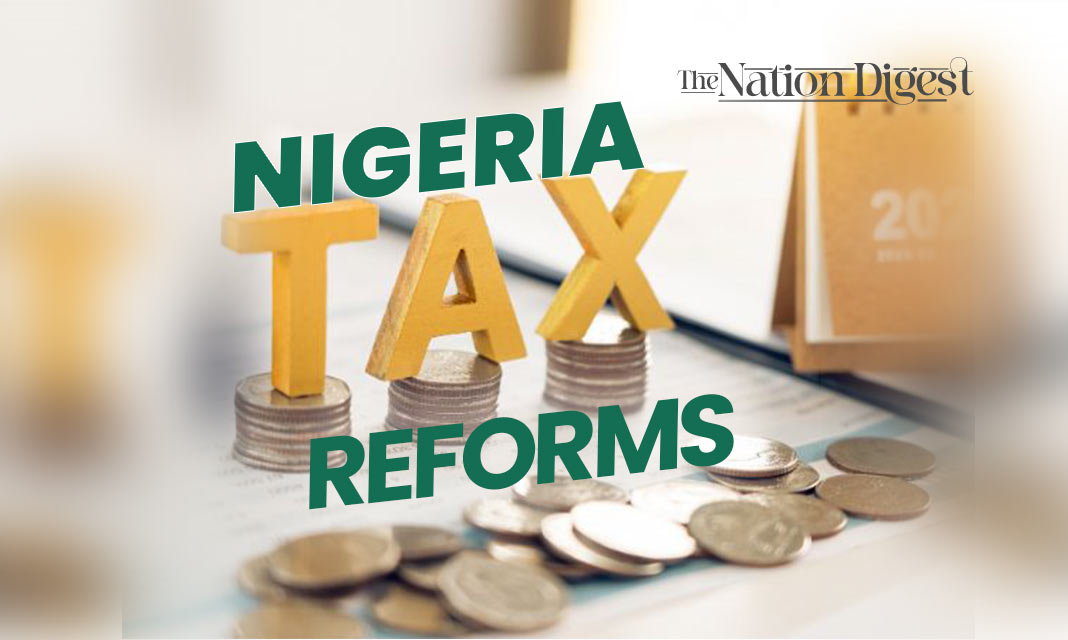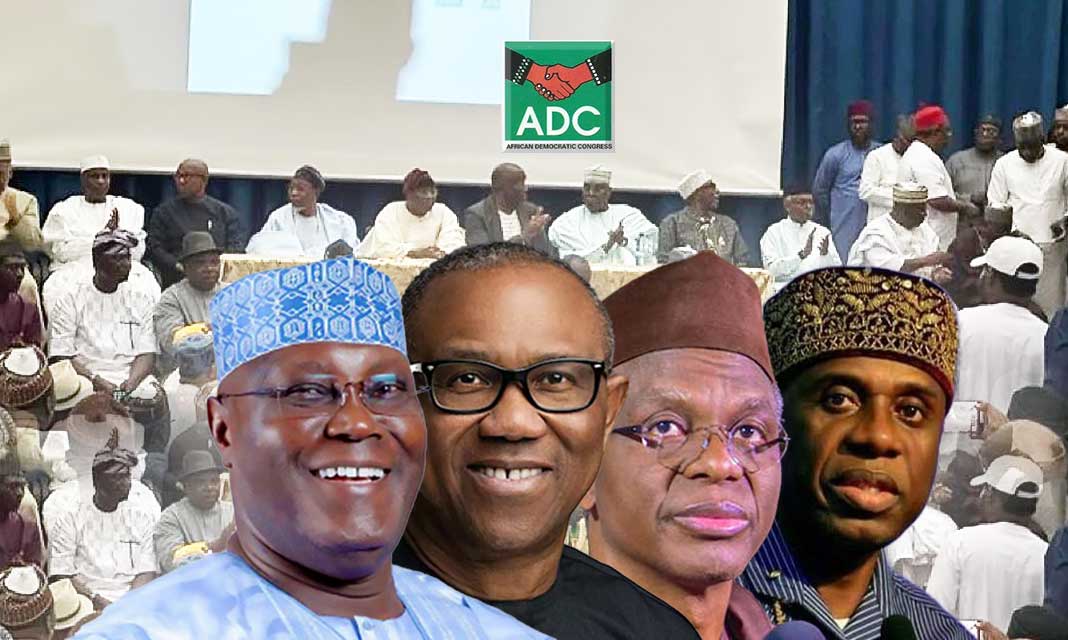It is 2025, and once again, Nigeria stands at the edge of sweeping tax reform. President Bola Tinubu’s administration has unveiled a package of four major tax laws, touting them as the most ambitious overhaul in decades. But as we review these reforms, we must ask an urgent question: Will this be the turning point, or just another chapter in Nigeria’s tax journey marked by complexity, inequality, and missed potential?
To understand where we are headed, we must look back, because Nigeria’s tax journey has never been just about numbers, It is a mirror of our politics, priorities, and the persistent tug-of-war between central control and regional autonomy.
The Early Days: Laying The Foundation
When Nigeria gained independence in 1960, it inherited a colonial tax system designed for control, not development. The first major moves like the 1961 Companies Income Tax Act and the earlier Petroleum Profits Tax were necessary foundations. They created legal clarity and attempted to tap into corporate and oil revenues to fund the young nation.
Still, from the very beginning, oil distorted the equation. As crude exports surged, taxes on companies and individuals seemed less urgent. Revenue was flowing, but the reliance on oil created a dependency that would haunt future reforms. This was the starting point of Nigeria’s tax journey—rich in ambition, but dangerously narrow in structure.
1980s – 90s: Economic Challenges and Sales, VAT, Education Levy and Unified Tax Codes
A major shift came in the early 1990s under military rule. In 1993 Nigeria replaced the sales tax with a nationwide Value-Added Tax (VAT). The new VAT Act (Decree No. 102 of 1993) set a flat 5% tax on most goods and services, broadening the tax base and capturing imports as well as local sales. At introduction, VAT was deliberately low to gain public acceptance and to quickly boost revenues. The VAT law was centrally administered by the Federal Inland Revenue Service (FIRS), but revenues were shared with states (50%) and local governments (35%), a sharing formula that later sparked intergovernmental debate. That same year, Parliament also enacted a 2% Education Tax on company profits to fund tertiary education. Finally, the Personal Income Tax Act (1993) standardized how individual income is taxed nationwide, replacing older state-specific laws.
These reforms expanded the tax net, but also sparked political tension. States felt sidelined in revenue sharing, and businesses grumbled about compliance burdens. Once again, we see a recurring theme in Nigeria’s tax journey: big reforms that solve one problem often create another.
In practice, Lagos State even passed its own hotel-and-restaurant tax after a court tussle, arguing that centrally-collected VAT on hospitality income infringed on its rights.
2000s: Building Institutions and Modernization
The 2000s saw Nigeria formalize its tax administration and introduce modern systems. In 2007, Parliament passed the Federal Inland Revenue Service (Establishment) Act, transforming the old Federal Board of Inland Revenue into the autonomous FIRS. This gave the FIRS clearer powers to assess and collect taxes (including those enacted in 1993 and new levies) and was intended to improve efficiency. That period also saw major tax law overhauls: for example, the Companies Income Tax Act was rewritten and amended (with a notable Finance Act in 2007) to refine rules on exemptions and loss carryforwards. An important technological advance came in 2008, when FIRS introduced a Taxpayer Identification Number (TIN) system to track all taxpayers electronically. Under the 2012 National Tax Policy, TIN registration was extended to both individuals and businesses, helping to widen the tax net and reduce evasion.
At the same time, Nigeria experimented with new incentives and levies. The Tertiary Education Trust Fund (TETFund) Act of 2011 reorganized the old education tax into an agency, aiming for better fund management. Over the decade, various Finance Acts tweaked rates and thresholds: for instance, corporate tax remained at 30%, while a minimum tax provision was introduced to ensure large companies paid at least a small tax even if losses wiped out profits. The overall impact of the 2000s reforms was more professional tax administration. Surveys showed FIRS collection improving year by year, though some taxpayers complained that multiple amendments made the laws hard to follow.
2010s: Expanding the Base and Embracing Tech
In the 2010s, focus shifted to broadening the tax base and using technology. The 2012 National Tax Policy aimed to harmonize state and federal taxes and eliminate duplications (for example, to avoid a citizen paying two different PITs on one income). FIRS rolled out more digital services: e-filing of returns, online payment portals, and improved databases (linking TINs to bank accounts) were gradually introduced. By the late 2010s most large companies filed returns online, reducing paperwork and human error. The tax code also saw new adjustments: Nigeria joined the global trend by taxing digital activities – in 2019, the corporate tax rate was cut to 20% (to meet an ECOWAS target), and laws were expanded so that foreign digital services (streaming, apps, etc.) selling to Nigerians would owe tax on their Nigerian turnover. A Tax Amnesty Program was launched in 2016-2017, offering reduced penalties to Nigerians who repatriated hidden funds, as part of an anti-corruption drive (though this drew mixed reviews).
Throughout this period, revenue collection slowly recovered. The business community, however, often lobbied against perceived burdens; for example, under a 2016 Finance Act an Information Technology levy (1%) had been imposed on telecoms and was later struck down by the courts, reflecting pushback from companies and consumers. Civil society groups also argued for simpler tax laws and transparency. Nevertheless, by 2020 Nigeria was taxing a larger share of its economy than ever before, aided by TIN registration and broader audits of the informal sector.
2020s: Digital Shift and Landmark Laws
The current decade has brought sweeping reforms – many aimed at digitalization and simplification. In 2020, amid COVID-related pressures, Parliament approved higher VAT (from 5% to 7.5%) and raised the education tax slightly (to 2.5%) to shore up revenues. New levies were introduced: a Digital Service Tax (roughly 6%) was applied to non-resident internet companies by Finance Act 2021, and in 2022 a Communication Service Tax mandated a 5% charge on telecom services. These moves followed global trends to capture the digital economy.
Tinubu’s Reforms: A New Direction or Familiar Terrain?
Now, in 2025, Tinubu’s administration is making a bold claim: it has rewritten the tax playbook. The Nigeria Tax Act, Tax Administration Act, and a rebranded Nigeria Revenue Service all promise simplicity, digitalization, and fairness.
Some parts of this vision are commendable. The move to mandate e-invoicing for VAT compliance is smart, it will reduce leakages and automate reporting. Higher thresholds for exemptions protect small businesses, and restoring full VAT credits could ease costs for formal businesses.
Yet, the reform is not without fault lines. The new “Development Levy” raises eyebrows, it replaces older charges but may feel like a rebranded burden. More importantly, the age-old fight over VAT sharing is back. Northern states are voicing concerns that the revised formula favors already-rich states like Lagos and Rivers. In a federation like Nigeria’s, this tension is not just political, it is existential. Nigeria’s tax journey cannot succeed unless all regions feel included and fairly treated.
Tinubu administration enacted four major Tax Reform Acts that rewrote much of the system. Signed on June 26, 2025, they include the Nigeria Tax Act, the Tax Administration Act, and a rename of FIRS to the Nigeria Revenue Service. These laws consolidated and repealed dozens of old levies, introduced new reliefs, and embedded technology. For example, VAT remains at 7.5% but the Acts explicitly restored full input VAT credits for businesses (making VAT less distortionary).
They also mandated a mandatory e-invoicing (VAT focalization) system for all VAT-registered suppliers, with phased rollout starting mid-2025. The goal is to give tax authorities real-time access to sales invoices, reducing evasion and leakages. Other changes included higher thresholds (exempting very small businesses from multiple taxes) and a new “Development Levy” to replace several older levies on companies.
Reactions and Public Opinions
According to the Forum of South-East Academic Doctors (FOSAD),
The law is a “progressive fiscal measure that prioritizes the needs of low-income Nigerians.”
Still, reactions have been mixed. On social media, many Nigerians express skepticism.
@luksidee argues that for tax reforms to be real, regions must have economic independence, including functioning ports in the Southeast and South-South, not just Lagos. Others, like @majorlouwe, believe all states should have equal access to revenue-generating infrastructure before uniform tax reforms are implemented.
Then there is the matter of trust.
@TimedFrank points out that past reforms—like subsidy removals and currency floats—lacked proper groundwork. Implementation was rushed, leading to hardship. People wonder if this tax reform will be different. There are concerns about the possibility of outsourcing collections to private firms, raising fears of a repeat of past scandals.
Critics like @Bethel_Anun said
go further, stating that no policy, no matter how technically sound, can succeed in a system where corruption and distrust dominate.
Others, including @CAOTheSaltire and @MaajiMunir,
argue that reforms must be judged not by their design but by their real-life impact. A policy that burdens citizens while failing to improve services is ultimately a failure.
Yet, not all responses are pessimistic.
@atosgraphix celebrates the reform, saying that it creates a common stake in governance. With everyone paying taxes, there is greater legitimacy in demanding accountability. This sense of shared burden, if properly harnessed, could be a turning point in Nigeria’s tax journey.But for that to happen, implementation must be transparent and inclusive. Tax brackets must be fair. Infrastructure must be distributed. And the government must stop recycling broken promises.
As @EyinEdidem notes,
reforms are good, but they must come with opportunities for all regions to thrive—including seaports in the South-South and industrial hubs beyond Lagos.
Some experts raise concerns beyond infrastructure. Isirue Israel, an audit supervisor and tax consultant, highlighted a key contradiction:
“The tax bill focuses more on generating revenue for the government and reducing burdens on businesses, but it risks causing greater hardship for poor income earners. Just hope the poor won’t have to break the bank to pay taxes.”
This tension — between revenue goals and socioeconomic equity — runs deep.
Ayobamidele Paul, CEO of Ascent University College, questioned the very foundation of these reforms:
“Let’s first restructure this country. This won’t work without giving power back to the people. It will never be equitable without that.”
On another front, Durosawo Oyelami called attention to Nigeria’s vast informal economy, often untouched by formal policy but central to daily life:
“The reform bill dwells on formal taxes, but ignores local market and transport taxes that affect the cost of living. These are mostly unaccounted for and need reform too.”
There is no doubt that the 2025 tax reforms are the most comprehensive since independence. They offer tools to modernize, simplify, and broaden the system. But Nigeria’s tax journey has never been just about policy design. It has always been a reflection of governance, equity, and trust.
The road ahead is long. If Tinubu’s administration wants this to be a real departure from the past, it must not only pass laws but also inspire belief. Only then can we say that Nigeria’s tax journey has finally turned a corner.




